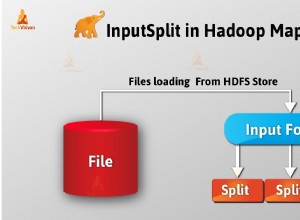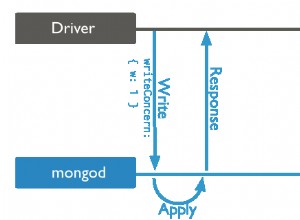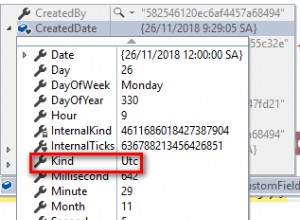Rozwiązaniem, które przychodzi mi do głowy, jest aktualizowanie zagnieżdżonego dokumentu jeden po drugim.
Załóżmy, że mamy zakazane frazy, które są tablicą ciągów:
var bannedPhrases = ["censorship", "evil"]; // and more ...
Następnie wykonujemy zapytanie, aby znaleźć wszystkie UserComments który ma comments które zawierają dowolne z bannedPhrases .
UserComments.find({"comments.comment": {$in: bannedPhrases }});
Korzystając z obietnic, możemy wspólnie wykonać aktualizację asynchronicznie:
UserComments.find({"comments.comment": {$in: bannedPhrases }}, {"comments.comment": 1})
.then(function(results){
return results.map(function(userComment){
userComment.comments.forEach(function(commentContainer){
// Check if this comment contains banned phrases
if(bannedPhrases.indexOf(commentContainer.comment) >= 0) {
commentContainer.isHidden = true;
}
});
return userComment.save();
});
}).then(function(promises){
// This step may vary depending on which promise library you are using
return Promise.all(promises);
});
Jeśli używasz Bluebird JS jest biblioteką obietnic Mongoose, kod można uprościć:
UserComments.find({"comments.comment": {$in: bannedPhrases}}, {"comments.comment": 1})
.exec()
.map(function (userComment) {
userComment.comments.forEach(function (commentContainer) {
// Check if this comment contains banned phrases
if (bannedPhrases.indexOf(commentContainer.comment) >= 0) {
commentContainer.isHidden = true;
}
});
return userComment.save();
}).then(function () {
// Done saving
});




